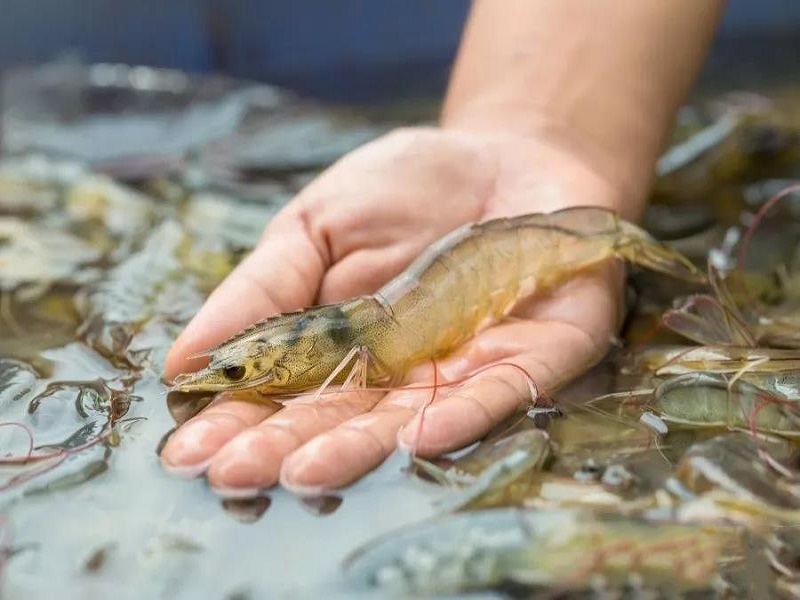In the process of South American shrimp farming, many farmers find that their shrimp feed slowly and do not grow meat. What is the reason for this? The slow growth of shrimp is due to shrimp seed, feed, and management during the aquaculture process. Potassium diformate can solve the problem of slow feeding and lack of meat growth in shrimp farming. Some breeders reported that they ate normal food in the first month, but didn't eat much in the second month, leading many breeders to think it was a problem with the bait and suspect that the poor quality of the feed was causing a decrease in shrimp appetite and a change in the type of feed. As a result, the slow feeding situation did not improve, and some ponds became even more serious.
Based on these issues, the reasons for the slow consumption of South American shrimp can be summarized as follows:
1. Reason for shrimp seed:
Some shrimp seed are naturally of different sizes, and their growth will also be different during later cultivation. There are also shrimp seed from different sources, which often grow slowly or stop growing in the later stage.
2. Water quality:
High levels of ammonia nitrogen, nitrite, and pH in the water can cause pathological changes in South American shrimp, thereby affecting their diet.
3. There are many microorganisms in the pond:
it can provide abundant bait organisms for shrimp, and the feeding process will be slow at this time.
4. Management factors:
High stocking density, shallow water level, insufficient water exchange, and insufficient feeding (generally controlled at 6-8% of body weight) can all cause slow feeding of shrimp.
In addition to the above factors that cause slow shrimp feeding, there are also bacterial and viral diseases. Shrimp with diseases will definitely eat slowly.
The effect of potassium diformate on the production performance of South American shrimp:
Potassium diformate can reduce the incidence rate of enteritis in Penaeus vannamei. Potassium diformate can not only improve the intestinal permeability, promote the digestion and absorption of protein, promote the growth of shrimp, but also promote the colonization and proliferation of beneficial bacteria in the intestinal tract, inhibit intestinal harmful bacteria, regulate the PH in the intestinal tract, promote intestinal development, maintain the intestinal health of shrimp, significantly reduce the incidence rate of enteritis in Penaeus vannamei, significantly improve the immunity of shrimp, increase the disease resistance of shrimp, and improve the vitality of shrimp. The effect of adding different levels of potassium diformate to feed on the production performance of South American white shrimp. Adding 0.8% potassium diformate to the diet increased the total weight of South American white shrimp by 20.6%, daily weight gain by 26%, and survival rate by 7.8%. The experimental results show that adding 0.8% level of potassium diformate to the feed of South American white shrimp can significantly improve the growth of shrimp and increase their survival rate.
The main function of potassium diformate is to have antibacterial and bactericidal effects, which can improve the disease resistance of shrimp and enhance their physical fitness. The main components of potassium diformate can regulate the structure of intestinal microbiota and maintain the balance of intestinal microbiota, which can improve the permeability of shrimp intestines, increase the activity of proteases, increase the digestion and utilization of feed protein, reduce feed ratio, improve the feeding status of shrimp, and promote shrimp growth.
Post time: Dec-20-2023




